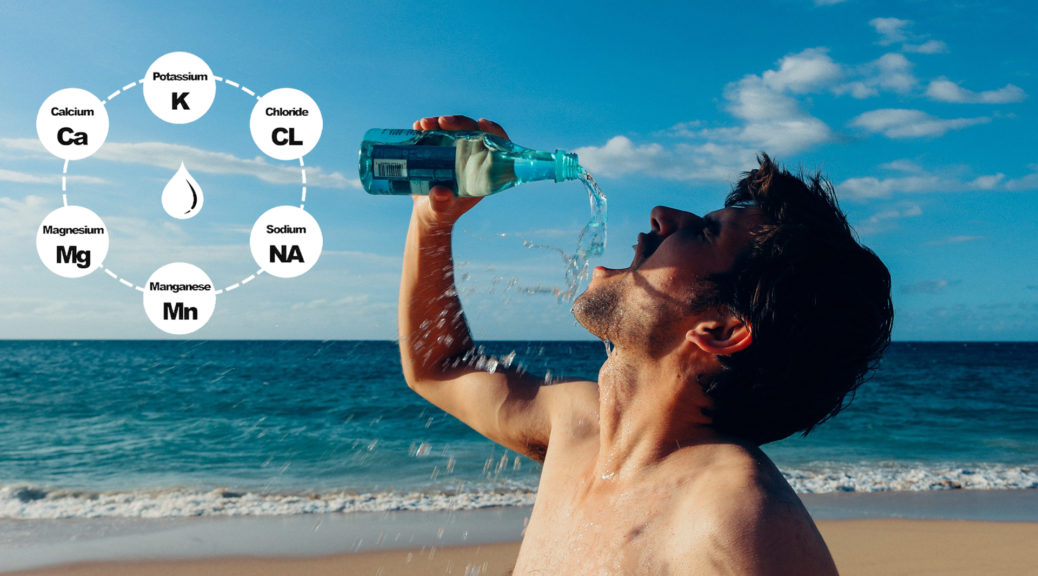
Importance of Electrolytes
Electrolytes
Sodium, potassium, calcium, magnesium and phosphate – carry electrical charges that are responsible for stimulating muscles and nerves. They occur naturally in the body. They also regulate the amount of fluids throughout your body, which affects cellular function, blood volume and blood pressure. These substances are present in your blood, bodily fluids, and urine. They’re also ingested with food, drinks, and supplements.
For example, sodium plays the primary role in water regulation, but they all help keep body fluids balanced. Your body maintains a specific amount of each electrolyte because a precise proportion of each one is needed for all of them to work properly.
When you work out and sweat, you don’t just lose water, but also electrolytes, the minerals that help deliver fluids to the cells that need them and are essential to everything from muscle health to brain function.
Sodium
It is the primary mineral lost in sweat during exercise. Sodium losses average about 1 gram per litre of sweat lost. So, if someone loses 1 litre of sweat per hour, they are also losing about 1 gram of sodium per hour, on average.
However, sodium losses can range from 0.2 grams per litre of sweat to 12.5 grams per litre of sweat have been recorded, according to the textbook “Essentials of Strength Training and Conditioning.
The body also loses chloride in large amounts via sweat, along with potassium, magnesium and calcium, albeit in smaller amounts.
Risks of an electrolyte imbalance
Electrolyte loss during exercise performance can cause hyponatremia, a condition in which sodium levels fall to dangerously low levels. Depending on how low sodium levels get, the effects can range from muscle cramps and headaches to seizures and even a coma.
Therefore, your goal should be to keep your electrolytes at healthy levels during exercise. When you keep your electrolytes at the right level, you ensure that your body can absorb and use whatever fluids you take in, your vital organs function properly and get the most out of each workout.
That’s where electrolyte-containing beverages and tablets come into play.
An electrolyte disorder occurs when the levels of electrolytes in your body are either too high or too low. Electrolytes need to be maintained in an even balance for your body to function properly. Otherwise, vital body systems can be affected.
What Do Electrolytes Do?
- Regulate the fluid levels in your blood plasma and your body.
- Keep the pH (acid/alkaline) of your blood in the normal range (7.35-7.45, slightly alkaline).
- Enable muscle contractions, including the beating of your heart.
- Transmit nerve signals from heart, muscle and nerve cells to other cells.
- Help blood to clot.
- Help build new tissue.
What Can Cause an Electrolyte Imbalance?
- Losing fluids as a result of persistent vomiting or diarrhoea, sweating or fever.
- Not drinking or eating enough.
- Chronic respiratory problems, such as emphysema.
- Higher-than-normal blood pH (a condition called metabolic alkalosis).
- Medications such as steroids, diuretics and laxatives.
To ensure that you have enough electrolytes, stay hydrated and eat foods rich in electrolytes, including spinach, turkey, potatoes, beans, avocados, oranges, soybeans (edamame), strawberries and bananas.
YOU CAN BUY ELECTROLYTES FROM SIX PACK NUTRITION
USE COUPON CODE “BPC” TO AVAIL 30% OFF FROM THEIR WEBSITE
